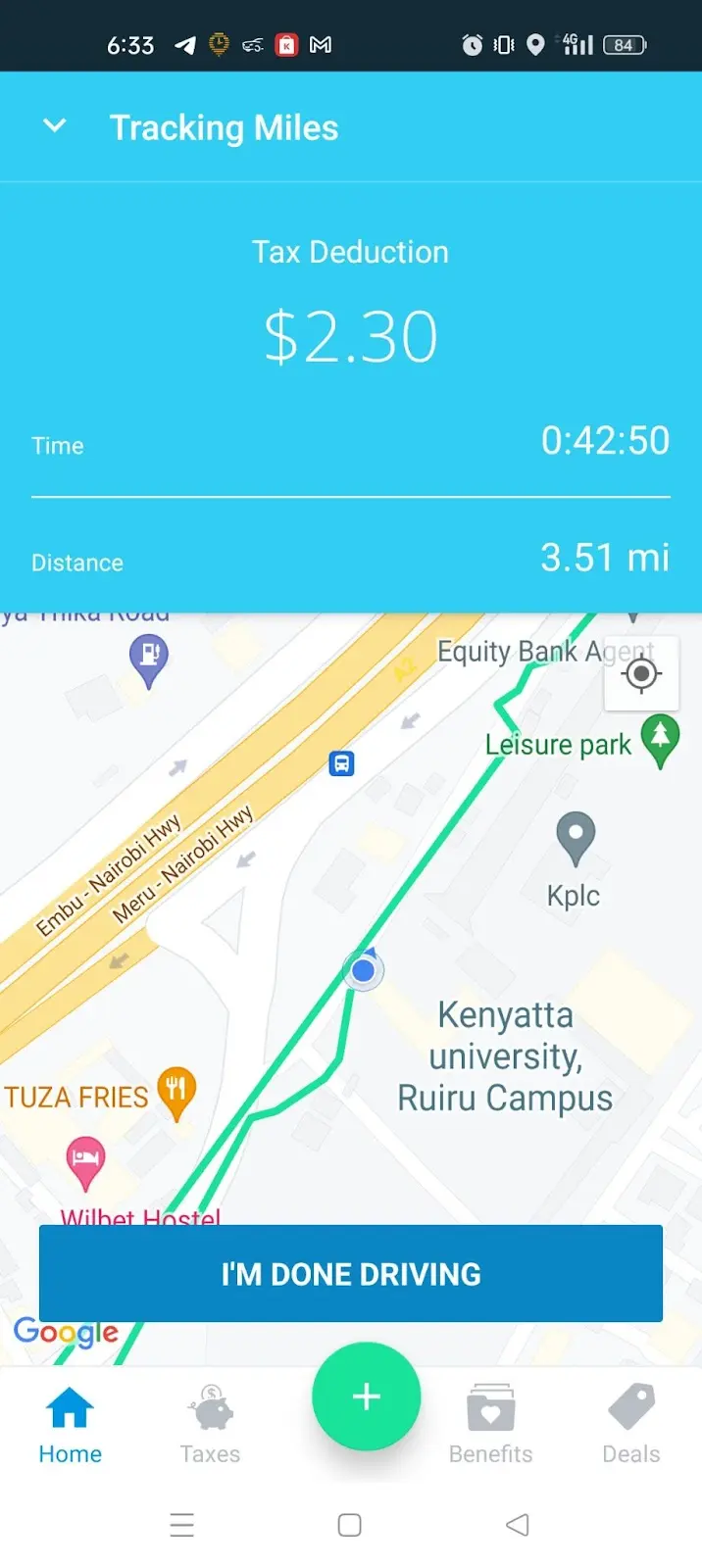Optimize Your Tax Obligation Deductions With a Simple and Efficient Gas Mileage Tracker
In the world of tax deductions, tracking your gas mileage can be an often-overlooked yet critical job for optimizing your monetary benefits. Recognizing the subtleties of efficient mileage monitoring may reveal strategies that can substantially affect your tax situation.
Relevance of Gas Mileage Tracking
Tracking mileage is critical for any individual seeking to maximize their tax obligation deductions. Exact mileage monitoring not only makes sure compliance with internal revenue service policies yet likewise permits taxpayers to take advantage of reductions related to business-related traveling. For freelance individuals and organization owners, these reductions can significantly lower gross income, thereby decreasing general tax obligation liability.
Moreover, keeping an in-depth document of mileage aids distinguish between individual and business-related journeys, which is important for substantiating insurance claims throughout tax obligation audits. The internal revenue service requires certain documents, consisting of the date, destination, function, and miles driven for each trip. Without careful records, taxpayers risk shedding valuable deductions or facing charges.
Additionally, efficient gas mileage monitoring can highlight patterns in travel expenses, assisting in much better financial planning. By assessing these patterns, people and organizations can recognize possibilities to maximize traveling paths, minimize expenses, and boost functional effectiveness.
Selecting the Right Gas Mileage Tracker
When picking a mileage tracker, it is necessary to consider various functions and performances that align with your specific needs (best mileage tracker app). The initial element to examine is the approach of tracking-- whether you choose a mobile application, a general practitioner device, or a hand-operated log. Mobile apps typically provide convenience and real-time monitoring, while GPS tools can provide even more precision in range dimensions
Following, analyze the combination abilities of the tracker. An excellent mileage tracker must effortlessly integrate with accounting software or tax prep work devices, permitting for straightforward data transfer and coverage. Look for attributes such as automated monitoring, which reduces the requirement for hands-on entrances, and categorization alternatives to distinguish between service and personal trips.
Just How to Track Your Gas Mileage
Picking a suitable gas mileage tracker establishes the structure for efficient gas mileage monitoring. To accurately track your mileage, start by determining the function of your journeys, whether they are for company, charitable activities, or medical reasons. This clarity will help you categorize your linked here trips and guarantee you catch all pertinent data.
Following, constantly log your gas mileage. For hand-operated access, document the beginning and ending odometer analyses, along with the date, objective, and course of each trip.
It's additionally vital to on a regular basis evaluate your entries for precision and efficiency. Set a routine, such as once a week or regular monthly, to consolidate your records. This practice aids stop disparities and ensures you do not neglect any insurance deductible gas mileage.
Finally, back up your records. Whether digital or paper-based, preserving back-ups shields versus data loss and promotes easy access throughout tax prep work. By carefully tracking your mileage and keeping arranged records, you will prepare for maximizing your possible tax obligation reductions.
Optimizing Reductions With Accurate Records
Accurate record-keeping is crucial for optimizing your tax deductions connected to mileage. When you keep comprehensive and specific documents of your business-related driving, you create a robust foundation for asserting reductions that may considerably decrease your taxable revenue.
Using a gas mileage tracker can simplify this procedure, enabling you to log your journeys easily. Lots of applications instantly determine distances and classify trips, saving you time and decreasing mistakes. In addition, maintaining supporting documents, such as invoices for relevant expenditures, enhances your instance for reductions.

It's vital to be consistent in recording your mileage. Inevitably, precise and orderly gas mileage documents are crucial to maximizing your deductions, guaranteeing you take complete benefit of the potential tax obligation advantages readily available to you as a business driver.

Common Errors to Stay Clear Of
Keeping thorough documents is a substantial step towards maximizing gas mileage reductions, however it's similarly important to be aware of usual blunders that can weaken these initiatives. One widespread error is falling short to record all trips properly. Even minor business-related trips can accumulate, so overlooking to record them can lead to substantial shed deductions.
An additional error is not distinguishing between personal and business gas mileage. Clear categorization is important; blending these two can i was reading this set off audits and cause charges. Furthermore, some people neglect to maintain sustaining files, such as invoices for associated expenditures, which can even more verify claims.
Inconsistent tracking approaches also present an obstacle. Counting on memory or erratic log access can lead to errors. Making use of Go Here a gas mileage tracker application ensures constant and dependable records (best mileage tracker app). Forgeting IRS guidelines can threaten your claims. Acquaint yourself with the current policies regarding gas mileage reductions to stay clear of unintended errors.
Verdict
In final thought, effective mileage tracking is necessary for maximizing tax obligation deductions. Utilizing a trustworthy mileage tracker streamlines the process of tape-recording business-related journeys, making certain exact documentation. Normal testimonials and back-ups of gas mileage documents boost conformity with internal revenue service laws while sustaining educated financial decision-making. By staying clear of common pitfalls and keeping meticulous documents, taxpayers can significantly reduce their overall tax obligation liability, ultimately benefiting their monetary health and wellness. Applying these practices promotes a positive strategy to handling overhead.
 Judge Reinhold Then & Now!
Judge Reinhold Then & Now! Jurnee Smollett Then & Now!
Jurnee Smollett Then & Now! Shannon Elizabeth Then & Now!
Shannon Elizabeth Then & Now! Lucy Lawless Then & Now!
Lucy Lawless Then & Now! Dolly Parton Then & Now!
Dolly Parton Then & Now!